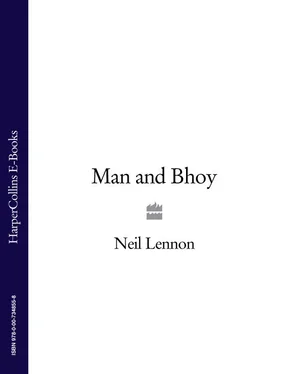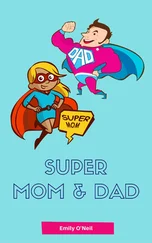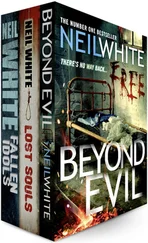Both my parents were warm and sociable people with a wide circle of friends and I am sure that it is from them that I get my love of sharing a good time with family and companions. My mother says I was a brilliant baby who slept and ate well, and was no trouble at all—nice to know I haven’t changed…
As any man who has been brought up in a household with three sisters will tell you, they spoil you and drive you daft in equal proportions. For instance, I don’t think I’ve ever won an argument with Orla in my life. But then she is a superb debater and orator, and in 1985 she reached the Northern Ireland final of the All-Ireland Public Speaking Championships. When she was fifteen she went on a trip to Bangladesh for three weeks as a prize for winning a speaking contest at school. Orla’s feats were reported in all the local newspapers and for a time she got bigger headlines than her wee brother. She later became a very fine teacher and is now married with two boys.
Like many people in Ireland, my dad went over to England to find work in the 1960s. He had a job at the Bedford truck factory in Luton but he came back to Lurgan—just as well he did, for that was when he and my mum encountered each other. The story is always told in our family that my mum met my dad at a dance in the town, and on that very first night she went home and told my grandparents that she had met the man she was going to marry. I am not sure whether or not that was my father’s reaction, but knowing my mum’s quiet determination, he was a lost cause to bachelorhood from that night on.
Dad worked as a foreman in an electronics factory but had to take premature retirement because he developed a debilitating illness which often leaves him very tired, but by and large he has not allowed it to affect him too much.
My earliest memories are of our house in Edward Street in the middle of Lurgan where we first lived. There was just Orla and me at the time. Between our house and my grandfather’s shop across the road, there was a long line of concrete barrels all joined together with metal piping. They were there to stop people parking their cars in the centre of town. In the 1970s, car bombs were a regular feature of life in towns across Northern Ireland, and the barriers were then supposed to prevent the bombers from getting access to the main shopping areas in Lurgan.
The security paraphernalia made life difficult at times, but I suppose that was the price we had to pay in order to live some kind of normal life in relative safety. As a child you do not realize the seriousness of events going on around you, and it is only in recent years, after what has happened to me, that I realize what a strain it must have been for my parents to raise children at such a time and in such a place.
We were constantly being evacuated from the house because of bomb scares which were usually, but not always, hoaxes. I remember one Friday afternoon very vividly. That was the day my mother always made her special stew which I loved and which was a real highlight of the week for me. I was starving that day and could barely wait to start. My sister Orla was carrying the pot from the oven to the dinner table when a huge explosion shook the house. A bomb had gone off somewhere in the town and the noise was absolutely deafening. Orla got a terrible fright, dropped the pot and burst out crying. My mother went over to comfort her but I was more upset that she had spilled the stew all over the floor and gave her pelters!
The local council had plans to develop the area around our house—they finally did it twenty-odd years later, as you can tell by the name Millennium Way—and in 1976 we were moved to a new house at Richmount Gardens on Taghnevan estate on the edge of town. Jane had been born the year before and my youngest sister Aileen arrived in 1978. There were now four Lennon children—I don’t know how my mother coped with all of us, but she did so magnificently.
Apart from the occasional inconveniences of life in Ulster at that time in the 1970s, I have to say I had a very happy childhood.
Fortunately for us, no members of my family were killed or injured in the Troubles, but one of my former schoolmates was not so lucky. Dennis Carville was one of the many people who died because they just happened to be of the wrong religion in the wrong place at the wrong time.
It was on 6 October 1990 that he was murdered. By then I was living in Stockport in England. I learned of the tragedy shortly after it happened and immediately recalled from schooldays a decent lad, an ordinary boy who would never have got mixed up in sectarian politics or fighting.
He was in his car with his girlfriend at a nature reserve, Oxford Island, at the south end of Lough Neagh. They had gone for some peace and quiet to a lover’s lane which was well known as such in Lurgan. A fortnight previously, a part-time soldier from the Ulster Defence Regiment, Colin McCullough, had been killed by the IRA as he sat in a car with his girlfriend at the same place.
As Dennis sat there, a paramilitary from one of the Loyalist groups came up and knocked on the window. Dressed as a soldier, he asked to see Dennis’s driving licence and as soon as he had established that Dennis was a Catholic, the gunman shot him dead in cold blood at a range of only inches. A Loyalist extremist group later let it be known that they had killed my Catholic former schoolmate in revenge for the murder of the Protestant UDR man.
It was one of many tit-for-tat killings during the Troubles, and it could have been any one of us Catholic boys from Lurgan who got the bullet that killed Dennis. He was just nineteen when he died, exactly the same age as myself at the time.
It was the banshee howl of the Troubles that I remember most.
Taghnevan was an almost totally Catholic/Republican/ nationalist estate—for the uninitiated, I should explain that many towns in Northern Ireland have their own system of virtual apartheid, with people from the Protestant/Unionist/ Loyalist tradition and the Catholics/Republicans/Nationalists both occupying their own enclaves and largely keeping themselves to themselves. It came as a shock to me when I moved to mainland Britain to discover that people of different faiths and cultures all lived together, cheek by jowl in the same streets and apartment blocks.
The worst period for tension and violence was undoubtedly the time of the hunger strikes in the early 1980s. The country was on the edge of all-out civil war during that long campaign by the Republican prisoners, led by Bobby Sands who, despite being in prison, had been elected an MP shortly before he died from the effects of self-starvation.
You could always tell when a hunger striker had died. As soon as news of the death broke, no matter whether it was in the dead of night or during the day, people would come out of the houses and would start to bang metal bin lids, either thrashing two together or thumping them off the pavement. Whistles would be blown at the highest possible volume, and men and women would shout the news. The noise would spread through the estate and sometimes there would be women wailing and frightened children screaming. I was only nine or ten at the time, but I can remember that cacophony as if it was yesterday. On one occasion a hunger striker died at about 4 a.m. and the noise of the bin lids and the shouts of protest reverberated around the estate in an unearthly manner. It was as if the banshee of ancient Irish folklore had suddenly come to life in Lurgan. I was truly frightened as I lay in my bed wondering how long the noise would go on for and what would happen the next day—in many places across Northern Ireland there would be riots and shootings. I knew why the noisy protest was taking place, of course, but I had no real concept of the underlying problems which had caused the Troubles to start in the first place.
Читать дальше











